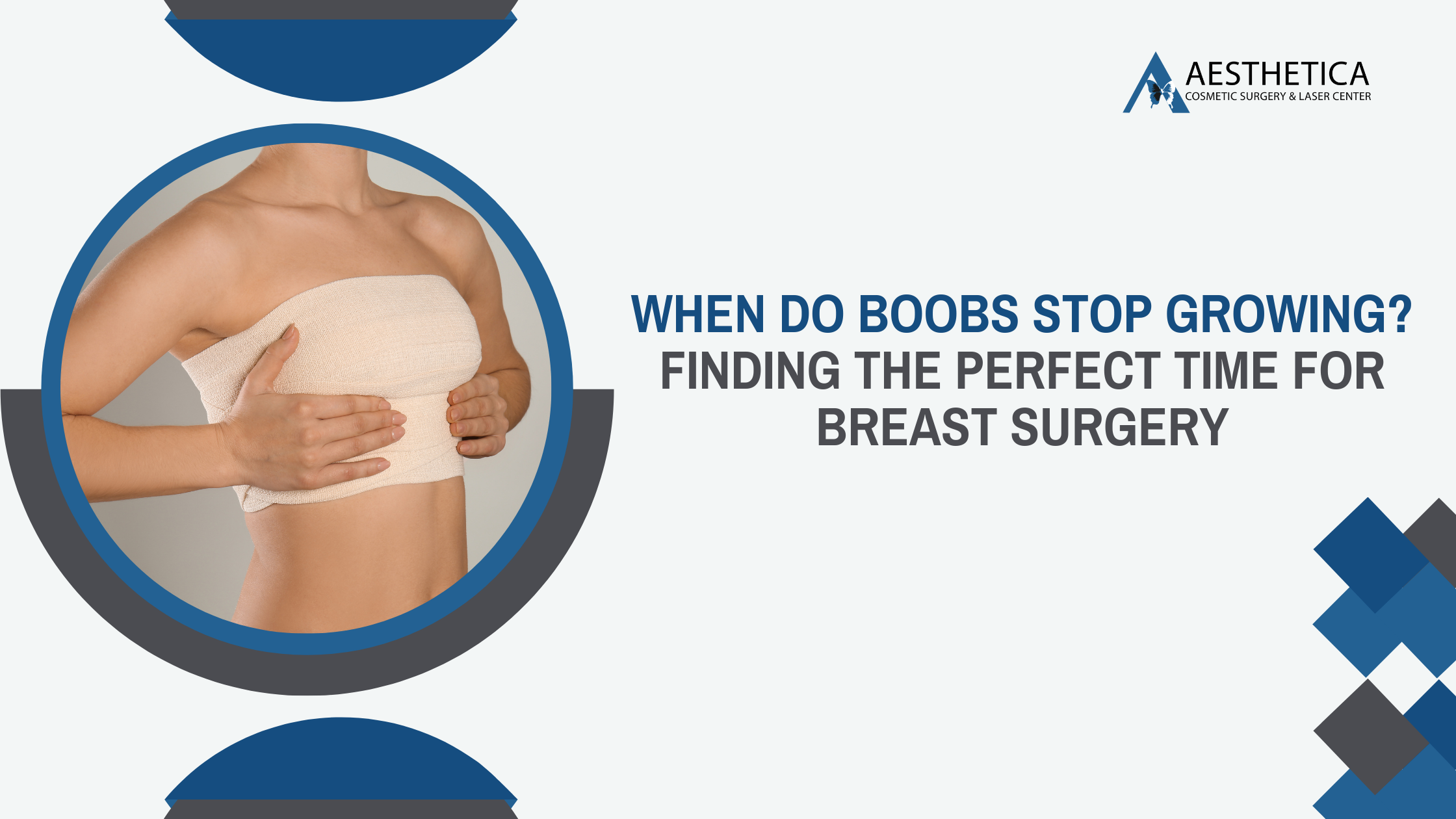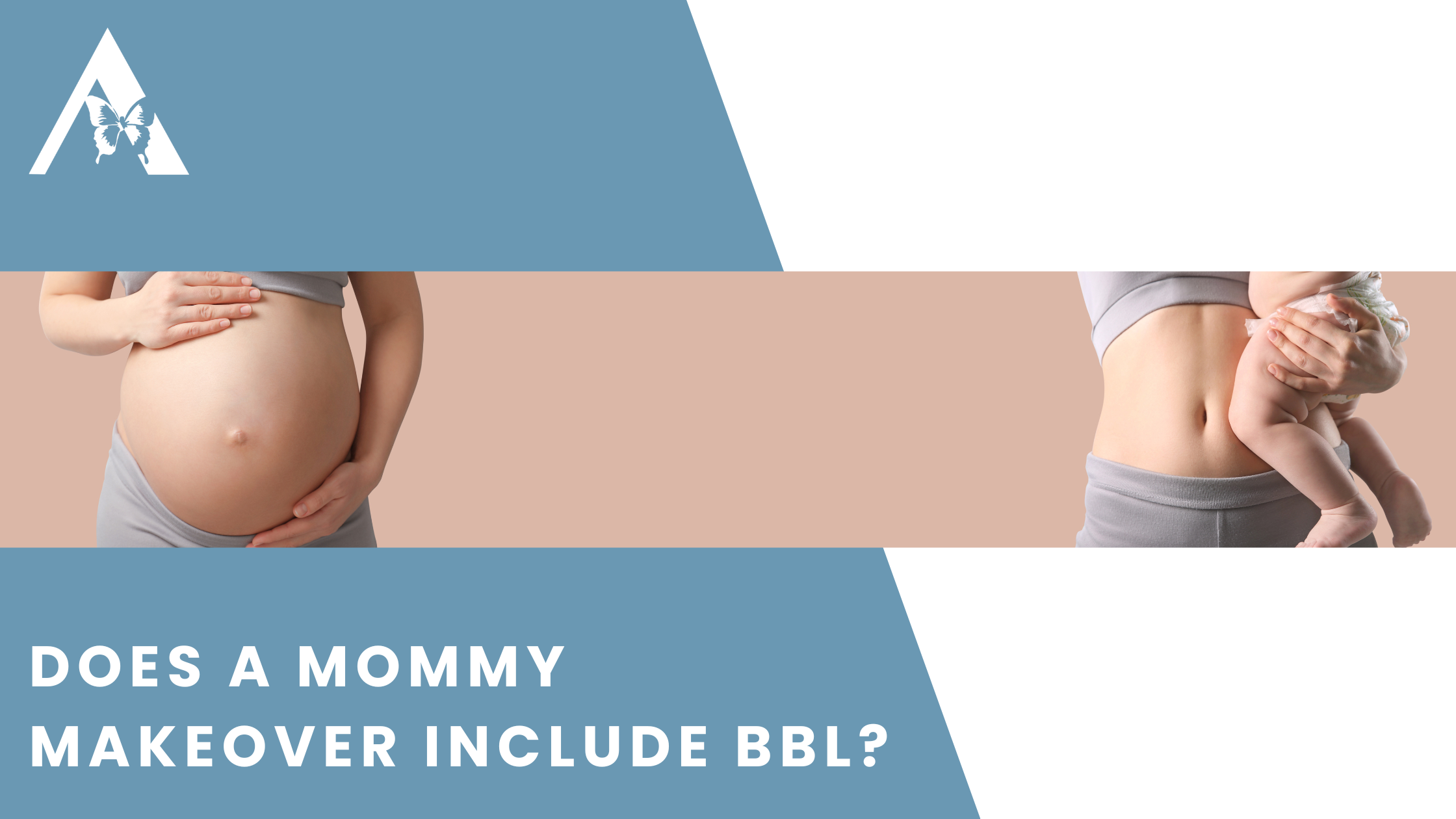Breastfeeding After Breast Augmentations: 5 Things To Know5 min read

Aesthetica Editorial Team

If you’ve recently undergone breast augmentation surgery, you may wonder if you can breastfeed after your procedure. The good news is that most women can breastfeed after getting their breasts augmented, but there are some things that you need to know to ensure a positive experience for both you and your baby. Here at Aesthetica, we want to help you navigate every procedure, from beginning to end. Therefore, we have listed five important things you need to know about breastfeeding after breast augmentation!
Can You Breastfeed After Breast Augmentation?
Breastfeeding with implants is possible – but it depends on the size and placement of the implants and the type of surgery you’ve had. You shouldn’t have any problems breastfeeding if the incisions are under the breast fold or in the armpit. However, if the incision is around the areola, you may have problems because the milk ducts may have been cut.
When it comes to breastfeeding, there is no way to know until you try it. It may be possible for you to produce some of the milk your baby needs and then supplement it with infant formula milk. Keeping your GP or health visitor informed of your breast implants will allow them to monitor your baby’s weight and ensure they’re getting enough nutrition.

Do Breast Implants Interfere With Nursing?
Breastfeeding relies heavily on the nerves surrounding the nipples. As soon as the baby starts suckling on a breast, the levels of the prolactin and oxytocin hormones increase significantly. Prolactin assists with breast milk production, whereas oxytocin facilitates the let-down reflex.
Generally, incisions made under the breast or through the armpit or belly button are less likely to interfere with breastfeeding.
How Safe Is It To Breastfeed With Implants?
Safety is a common concern for mothers who have had breast augmentation done in the past and are wondering how safe is it exactly to breastfeed with implants. As reported by the Centers for Disease Control and Prevention (CDC), there have been no reports of silicone implants causing problems for babies born to mothers who have had their breasts augmented. A 2007 study that tested silicon levels in breast milk did not find higher levels in breast milk in mothers with silicone implants compared to those without them. So yes, it is safe for mothers who have had breast augmentation in the past to safely breastfeed their babies!
Tips on How To Breastfeed After Breast Augmentation
Frequent Breastfeeding Helps
As long as you breastfeed your baby eight to twelve times a day, you will establish and maintain milk production in your body. The sensation of your baby sucking on your breast stimulates your body to produce milk. Therefore, the more you breastfeed, the more milk you will produce.
Breastfeeding from both breasts can also increase your milk supply. You can also increase your milk supply by breastfeeding from both breasts.
Latching Is Key
Your baby should be able to take enough of your breast into its mouth to ensure proper latching. The process starts by ensuring the baby’s mouth is wide open when it latches. Next, make sure that the baby’s gums and tongue cover about an inch or two of your areola when your nipple is inserted into its mouth.
Your baby must be placed in a suitable position for you to be able to guide it toward your breast. Your thumb and forefinger should be in a “C” position on your breast, which can make it easier for your baby to latch onto your breast.
In addition to having a lactation consultant available through your doctor’s office or hospital, you might also want to consider seeing a lactation therapist. Lactation therapists can observe your feeding sessions and give feedback on your baby’s latch and position during feeding.
Baby Formula in Conjunction With Breast Milk
When producing a small amount of milk for your baby, you may want to talk to their pediatrician or lactation consultant about supplementing breastfeeding with formula to facilitate your baby’s growth.
Observe your baby for signs that it’s getting enough milk, such as:
- A steady and slow sucking motion with deep jaw movements while on the breast.
- A daily average of six wet diapers and three soiled diapers.
- A change in bowel habits from black meconium to yellow, seedy feces.
A child’s weight is another indicator of a mother’s milk supply quality. Most babies lose 7 to 10% of their weight in the first two to four days of their lives before gaining weight again.
Empty Your Breasts Frequently
It is important to empty your breasts after feedings — either through a breast pump or by hand expressing — to increase milk production. According to a 2012 study, simultaneously pumping both breasts increases the amount of breast milk. The breast milk can be hand-expressed or pumped into a bottle if your baby can’t latch onto your breast.
Get Enough Sleep and Reduce Stress When Breastfeeding
If you want to breastfeed your baby, you should do all you can to stay calm. If your stress levels are high, your baby will sense them and won’t feel relaxed — and your milk production will be affected!
The most common breastfeeding problem mothers experience is exhaustion. Take a warm shower, listen to soothing music, or take a deep breath if you feel stressed while breastfeeding. Comfortable positions and skin-to-skin contact can help.
There are several things that you can do so that you get enough rest:
- Take as many naps as you can, especially when your baby is sleeping.
- Consider limiting visitors for the first two weeks.
- Don’t be afraid to ask your partner, family member, or friends for help.
The hard work you put into breastfeeding your first baby will pay off — after a successful breastfeeding experience with your first child, breastfeeding subsequent children will become much easier!

Ready For Your Breast Augmentation Journey With Dr. Chang?
Ready for your breast augmentation? Come meet with us at 19500 Sandridge Way, Suite 350, Leesburg, VA 20176, or call us at (703) 574-4342 for a complimentary consultation with Board-Certified Plastic Surgeon Dr. Phillip Chang before moving forward with your procedure! If everything matches up, our team will help you navigate the entire process, from beginning to end! Also, don’t forget to check out our blog and social media for more information on plastic surgery and plastic surgery trends!
Let Us Help You!
Our office can provide you with helpful information, schedule a free consultation, and walk you through the many services and procedures we provide.
Contact Dr. Chang's Office:
More Articles For You

What’s a Unit of BOTOX Anyway? | Aesthetica GoToBeauty
Have you ever heard about BOTOX and wondered what it’s all about? It’s like the

When Do Boobs Stop Growing? Finding the Perfect Time for Breast Surgery
Ever wondered when your boobs finally decide to take a break from growing? Or you’re
Are Silicone Injections in Buttocks Safe?
In today’s world, where the aesthetic appeal of one’s body can often feel as though

Does a Mommy Makeover Include BBL?
Many women look forward to the blessings of motherhood. Having a child is a very
